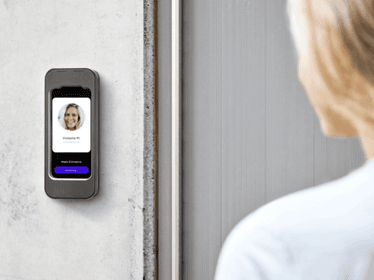Property managers are juggling financial hardship from tenants and new guidance on how to operate their properties due to COVID-19. The resources below are meant to guide property managers through all of their COVID-related issues to support themselves, their communities, and their properties.
COVID Resources for Property Managers
Property Manager Guidance
- COVID Resources and Guidance (National Apartment Association)
- Coronavirus Preparedness for Apartment Firms (National Multifamily Housing Council)
- Managing Through Pandemics: Preparing Your Buildings, Tenants and Staff (Building Owners and Managers Association International)
- Property Management FAQ During COVID-19 (Multi-Housing News)
COVID Best Practices for Property Managers
- What to Do When a Tenant is COVID-19 Positive (CRES Insurance)
- Template Letter to Residents Concerning Positive COVID Case (National Apartment Association)
- Self-Guided Apartment Tours (RealPage)
- Video Intercom for Contactless Apartment Touring (Swiftlane)
COVID-Related Impact on Housing
Resources for Working with Renters and Tenants
- Tools for Communicating with Tenants (National Multifamily Housing Council)
- Template Letter to Tenants Concerning COVID (American Apartment Owners Association)
- Mental Wellness During COVID (National Alliance on Mental Illness)
Financial Assistance for Tenants
- Local Rent Assistance Programs (Rent Assistance)
- Individual Financial Assistance due to COVID-related hardship (United Way)
Rent Relief for Tenants
Under the Coronavirus Aid, Relief, and Economic Security Act, also known as the CARES Act, and the Consolidated Appropriations Act, 2021, there is and continues to be rental assistance for tenants. The Consolidated Appropriations Act (CAA) allocated $25 billion of federal rental assistance to qualified households for rent-related expenses (listed below).

An “eligible” household, as defined by the US Department of Treasury, is a rental household with at least one individual who meets the following criteria:
- Qualifies for unemployment or has experienced a reduction in household income, incurred significant costs, or experienced a financial hardship due to COVID-19;
- Demonstrates a risk of experiencing homelessness or housing instability; and
- Has a household income at or below 80 percent of the area median.
Qualified households can receive up to a year of assistance, with the opportunity of 3 month extension in order to ensure stability of housing.
Most importantly, applications can be submitted by landlords and owners on behalf of their tenants:
The only requirements for applying on behalf of a tenant is a signature from the tenant, which can be done electronically. Documentation of the completed application should also be given to the tenant:
COVID Resources for Landlords and Property Owners
Property owners have a unique set of challenges when it comes to COVID-related hardship. They had to support both themselves and their expenses, along with their property managers and tenants. Below is a list of resources and information specifically for property owners and their investments.
Forbearance and Foreclosure Protection
As of February 16, 2021, the COVID forbearance and foreclosure protection for homeowners has been extended to June 30, 2021. This means that due to financial hardship caused by COVID-19:
- Landlords with mortgages from Fannie Mae, Freddie Mac, or the US Department of Housing and Urban Development (HUD) are still eligible for 90 days of forbearance on their multifamily properties.
- Foreclosures on federally backed mortgage loans continue to be prohibited for 60 days and borrowers are provided 180 days of forbearance.
- Borrowers who entered forbearance on or before June 30, 2020 will receive up to six months of additional mortgage payment forbearance in three-month increments.
Grants
- National and state-based small business grants for COVID relief
Tax Credits
- The newly enacted Employee Retention Credit is a refundable tax credit of 50% of up to $10,000 in wages paid by an eligible employer whose business has been financially impacted by COVID-19.
Under the Families First Coronavirus Response Act (FFCRA), American businesses with fewer than 500 employees can receive 100% reimbursement for providing their employees with paid leave, either for the employee’s own COVID-related health needs or to care for family members.







